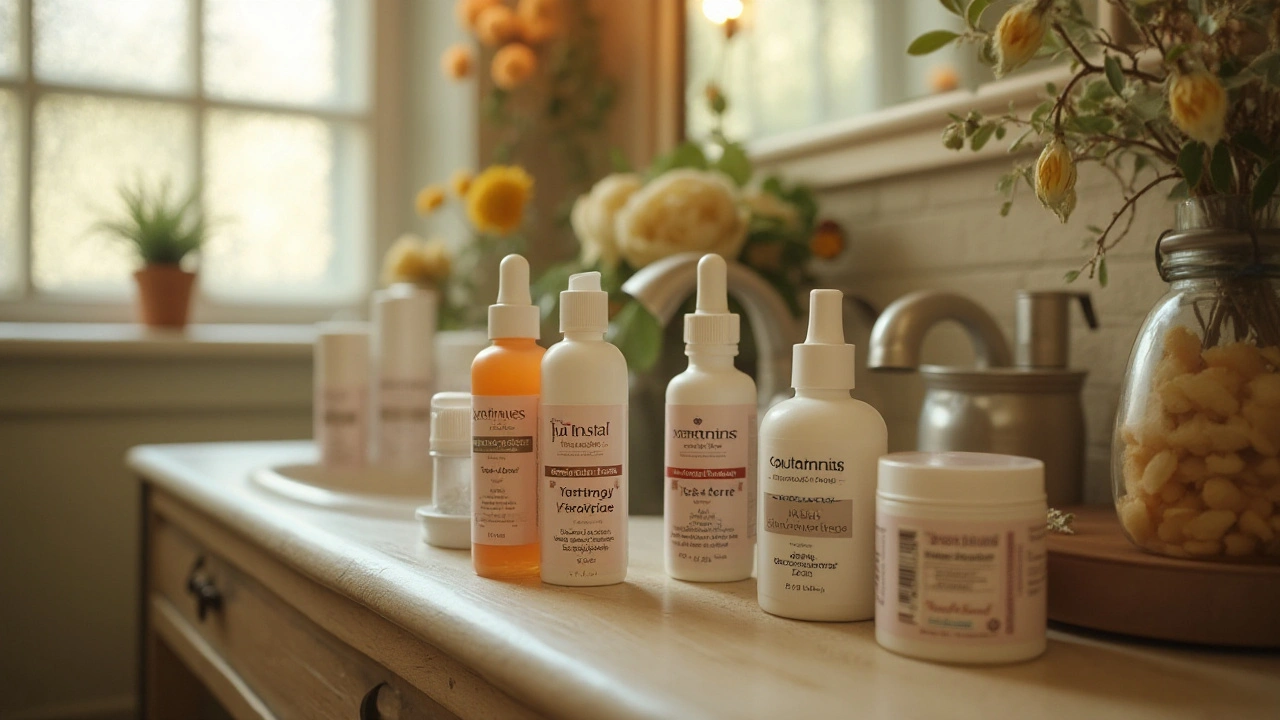Acne treatment: what works, what to try next
Acne is more than pimples — it can drain your confidence and time. You don’t need every miracle product on the shelf. Focus on what actually helps: treatments that match your acne type, realistic expectations, and safe ways to get medications without overspending.
Prescription options to know
If over-the-counter products don’t help, talk to a prescriber about these common prescriptions. Topical retinoids (like tretinoin) unclog pores and reduce future breakouts. Antibiotics can reduce inflammation fast — doxycycline (Vibramycin) and azithromycin (Zithromax) are used often, though doctors try to limit antibiotic length to avoid resistance. For stubborn nodules, isotretinoin (Accutane) can clear acne long-term but needs strict medical monitoring.
Some people prefer hormone-based options: combined oral contraceptives and spironolactone can lower oil production in women. There are also targeted biologics and newer approaches for specific severe cases; your dermatologist will know when those make sense.
Over-the-counter and daily steps that help
Start with benzoyl peroxide and salicylic acid. Benzoyl peroxide kills acne bacteria and reduces inflammation; salicylic acid helps unclog pores. Use one active at a time to avoid irritation. Gentle cleansing, avoiding harsh scrubs, and using non-comedogenic moisturizers make a big difference. Don’t pick or squeeze — that raises infection and scarring risk.
Diet and habits matter: low-glycemic foods and fewer dairy servings often help some people. Sleep, stress control, and quitting smoking improve skin health too. If scarring or persistent cysts are the problem, ask about in-office options like cortisone injections, laser, or professional extraction.
Worried about side effects or weight gain from medications? There are articles on our site comparing options and side effects — like alternatives to Vibramycin and Isofair — so you can read practical pros and cons before a clinic visit.
Buying meds online? Use caution. Our site has several posts reviewing online pharmacies, price comparisons, and safety checks. Look for pharmacies with clear contact info, verified credentials, and secure checkout. Avoid suppliers that ask for no prescription for Rx-only drugs or offer suspiciously cheap branded meds. If cost is the barrier, price-comparison tools and Canadian pharmacy options can save money legally in many cases.
When to see a doctor: if breakouts are painful, widespread, leaving dark marks or scars, or if OTC products haven’t helped after 8–12 weeks. A short visit can get you a tailored plan — topical, oral, or procedural — that saves time and prevents scarring.
Want to read more? Check the linked articles on this tag for practical guides, antibiotic alternatives, and trusted online pharmacy options. Ask your provider questions about safety, cost, and realistic timelines — good treatment is steady, not sudden.
Top 10 Alternatives to Isotroin for Acne Treatment
Exploring different alternatives to Isotroin can provide effective solutions for managing acne. From topical treatments like Tretinoin and Benzoyl Peroxide to antibiotics such as Doxycycline and Clindamycin, each option has its unique advantages and drawbacks. This article provides an in-depth look at the pros and cons of ten alternatives, aiding individuals in finding the most suitable acne treatment. Understanding each choice allows for better personal decisions in skin care.
